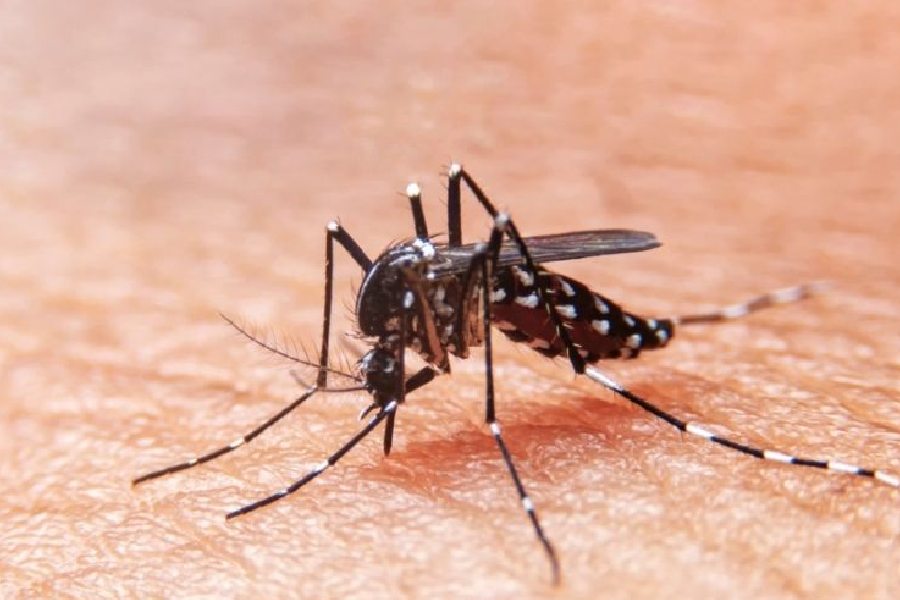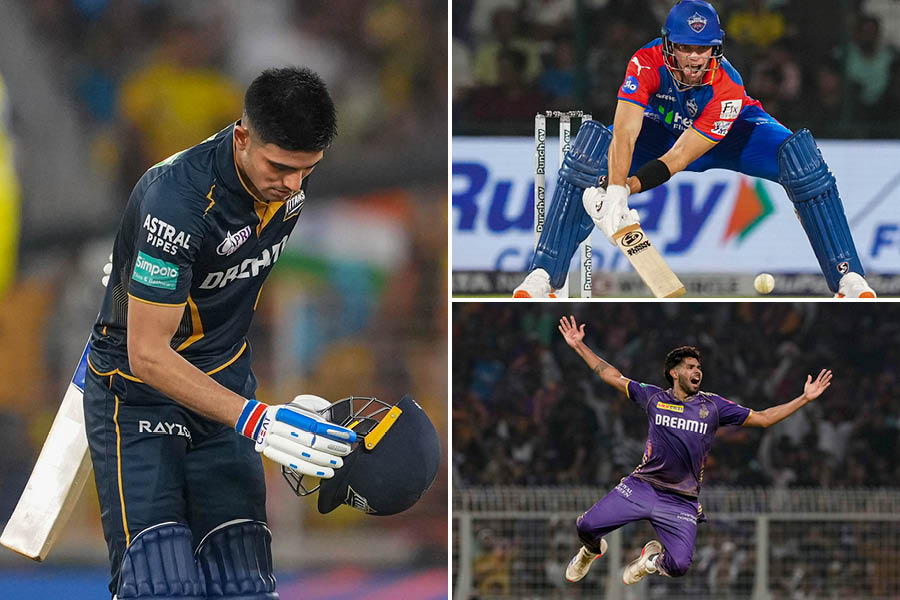Mid-August: 700; End August: 1,400
The number of dengue cases in Kolkata has doubled in about a fortnight, figures shared by some officials of the Kolkata Municipal Corporation over the last month have shown.
There has been a corresponding rise in hospital admissions too, senior officials and doctors of private healthcare units in Kolkata said.
A KMC official said on Saturday that till the last count, about 1,400 dengue infections have been reported since January. KMC updates the number of dengue infections in the city every Thursday.
The Telegraph had reported earlier that about 700 dengue cases were reported till the second week of August.
Neither the KMC nor the state health department released any official data on the number of dengue infections, but some officials shared with The Telegraph the number of dengue infections on condition of anonymity. There is no official data on the number of people who have died of dengue, but several deaths from dengue have come to light.
KMC officials admitted on Saturday and Sunday that the numbers have seen a sharp rise in the last two weeks.
“We are going door-to-door telling people that they should not allow water to accumulate anywhere in their house. We are also detecting and destroying sites for mosquito breeding. We are also cleaning abandoned vacant plots as they turn into sites for mosquito breeding,” said a KMC official.
Hospital admissions
At the Rabindranath Tagore International Institute of Cardiac Sciences (RTIICS), about 1 or 2 dengue patients were under treatment every day till the middle of August. The numbers then started to rise. “We had 14 dengue patients under treatment on Sunday. Ten dengue patients were admitted last week,” said R. Venkatesh, the group COO of Narayana Health, the owner of RTIICS.
Sudipta Mitra, the chief executive officer of Peerless Hospital, said 20 dengue patients were under treatment in the hospital about two weeks ago. On Sunday, there were 42 dengue patients under treatment at the hospital. “Most of the patients were admitted because their fever was not subsiding but the platelet count was going down,” said Mitra.
Amitabha Saha, a critical care specialist at the AMRI Hospitals Mukundapur, said there were 21 dengue patients under treatment at the hospital on Sunday. Two of them were admitted to the critical care unit, said Saha. Till the middle of August, there were seven or eight patients under treatment at the hospital on average every day.
Senior KMC officials said they have noticed a trend that dengue infections start rising from late August or early September and the spike sustains till late October or November. “The numbers are likely to rise further in the coming days,” said one official.
Aedes aegypti mosquito, which transmits the dengue virus, can breed in even a spoonful of water. Aedes mosquitoes are known to be small container breeders.
“These mosquitoes can breed in freshwater accumulating in tea cups and green coconut shells. Any container where water is stored must have a lid over it,” said one KMC official.
Many residents said that vector control workers of tthe KMC have visited their homes.
But KMC officials said that lack of civic sense was a hindrance as new mosquito breeding sites keep developing.
Alert signs
Chandramouli Bhattacharya, an infectious diseases specialist at the Peerless Hospital said that no one should neglect a fever that is two days old. “Consult a doctor immediately,” he said.
A test within the first 24 hours of fever may come out to be negative for dengue, but it could well be a false negative. “I will suggest going for a dengue test after 24 hours or after 48 hours from onset of fever,” he said.
Bhattacharya said patients with the following symptoms should be admitted to a hospital:
- Drowsiness
- Severe and persistent abdominal pain
- Continuous vomiting
- Inability to drink adequate fluid owing to nausea or vomiting or other factors
- Reduced urine output
- Breathing trouble
- Major bleeding from nose, stool or vomiting






